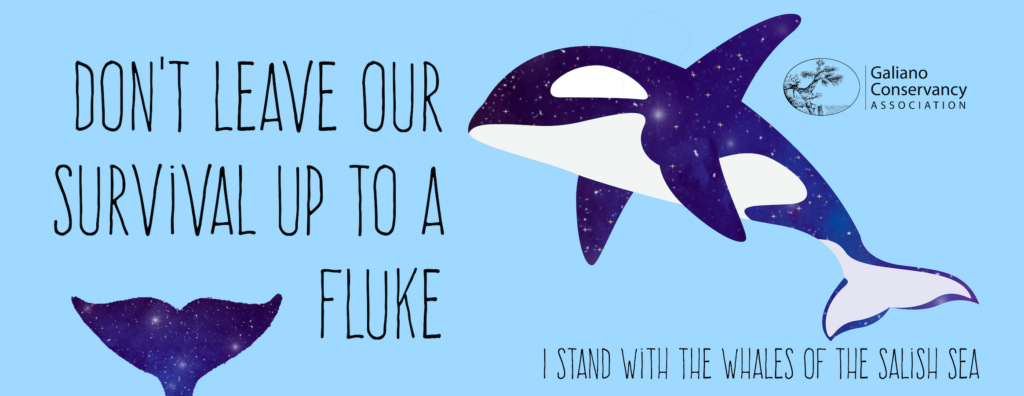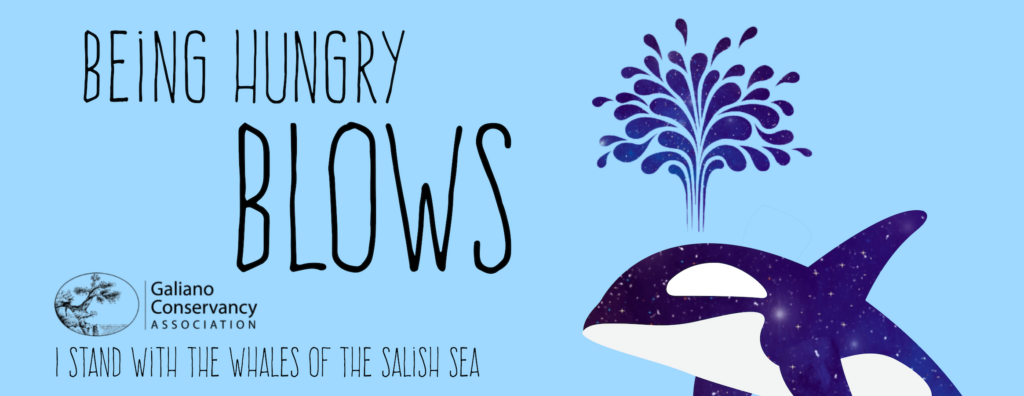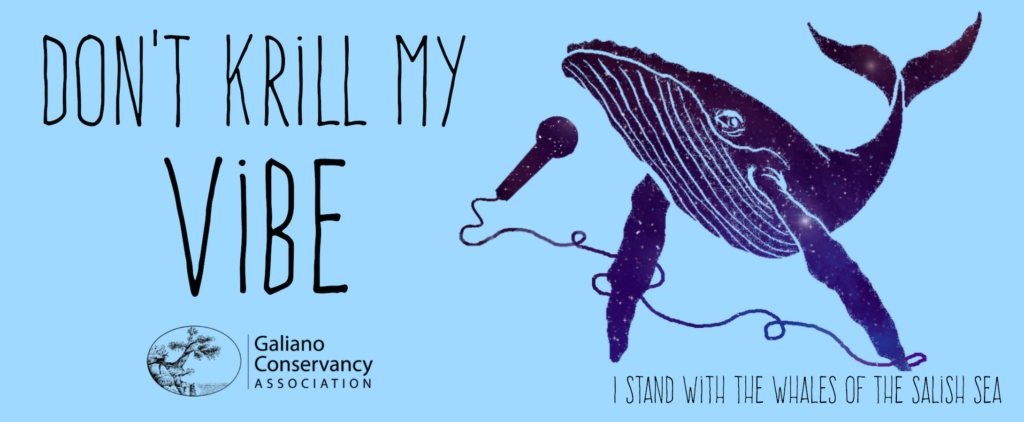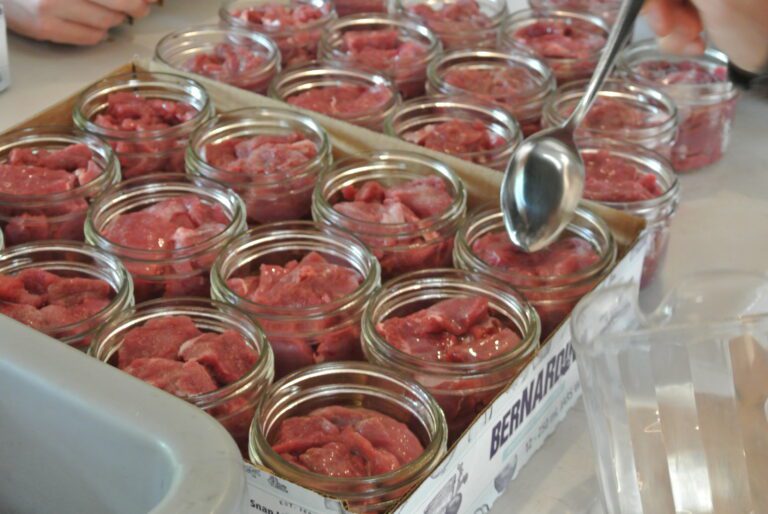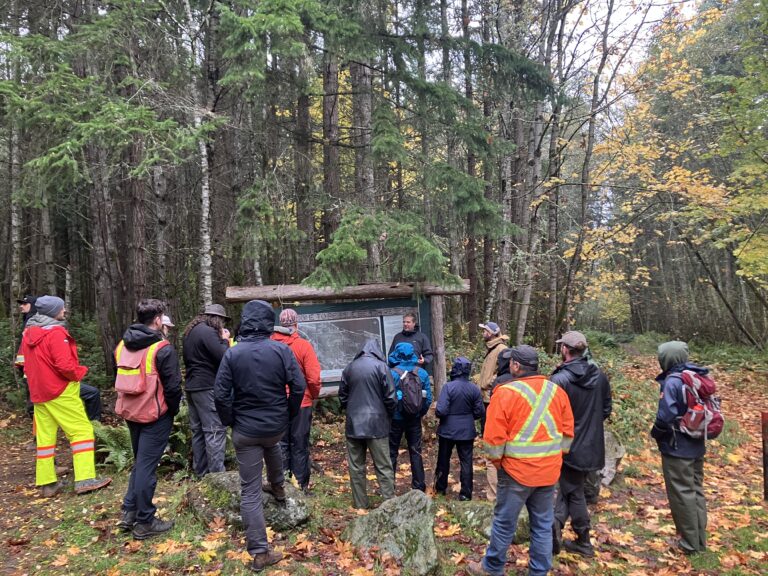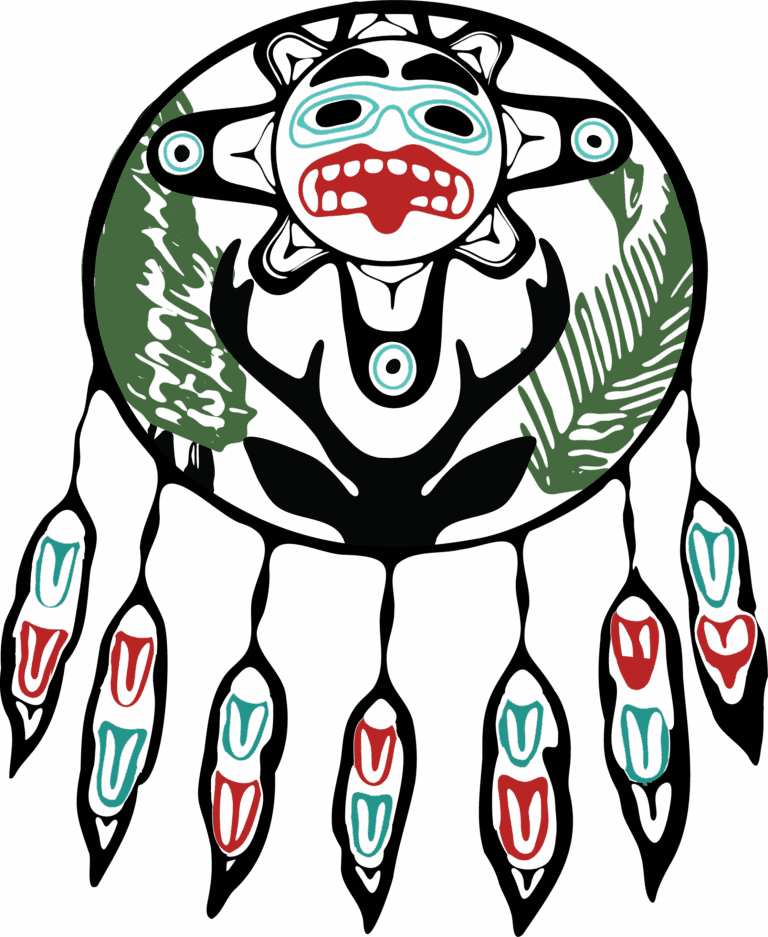DEEP goes deep
Together we can create a healthier ocean that sustains us all!
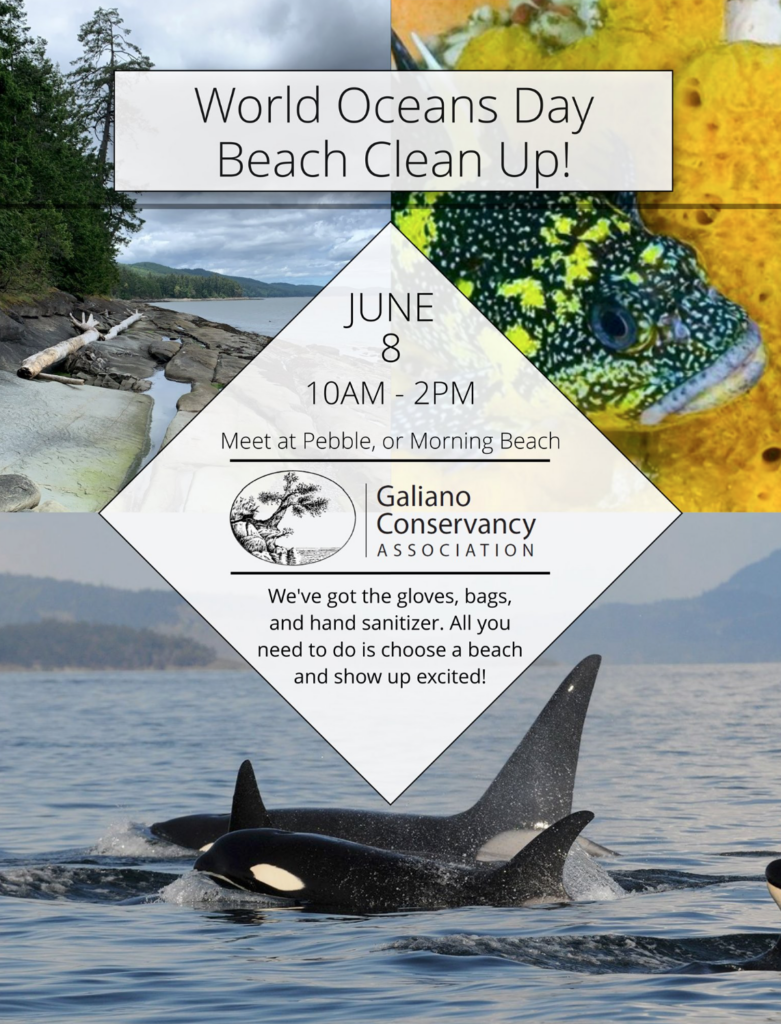
June 8th is World Oceans Day & the Galiano Conservancy Association is hosting a very special beach-cleaning scavenger hunt. Join us in our Galiano-wide shoreline clean-up at any beach on Galiano of your choice!
Need beach-cleaning supplies? Come to one of our organized clean-up stations at Pebble Beach Parking lot, or Morning Beach, from 10AM to 2PM to pick up garbage bags and gloves and start your very own beach-cleaning scavenger hunt anywhere on island.
We will accept your full garbage bags at the Pebble Beach and Morning Beach parking lots until 2PM (please make sure they are free of any smelling content). Every kid/family who brings collected debris back to our clean-up stations will get one whale bumper sticker of tehir choice (see below)!
Don’t live on Galiano? You can still help our oceans out! If you are from off-island and send us a photo of your personal beach clean-up on your shoreline via deep@galianoconservancy.ca and we will mail you a bumper sticker!
Have you ever wondered what array of treasures you can find at the beach? Sometimes it is a lonely shoe and you wonder what happened to the second? Sometimes it is ocean glass, and you collect the little see-through piece and make a necklace. But most of the times we find a great amount of microplastics (microplastics are very small pieces of plastic that pollute the environment) and bigger debris, like water bottles, packaging, and even ear cleaner along our shoreline.
Plastic is accumulating in the ocean minute by minute. Around 8 million tons of plastic are swept into the ocean every year. Such a high number is hard to imagine – the equivalent of 8 million tons would be over 26,600 Boeing 747 planes. Plastic production, low recycling levels, and incorrect waste management are the main causes of plastic pollution. Ocean plastic pollution causes marine creatures to suffer and their populations to be reduced. There have even been plastics found in some of the smallest creatures in the ocean like 5mm sized zooplankton, that is how small plastics can break apart!
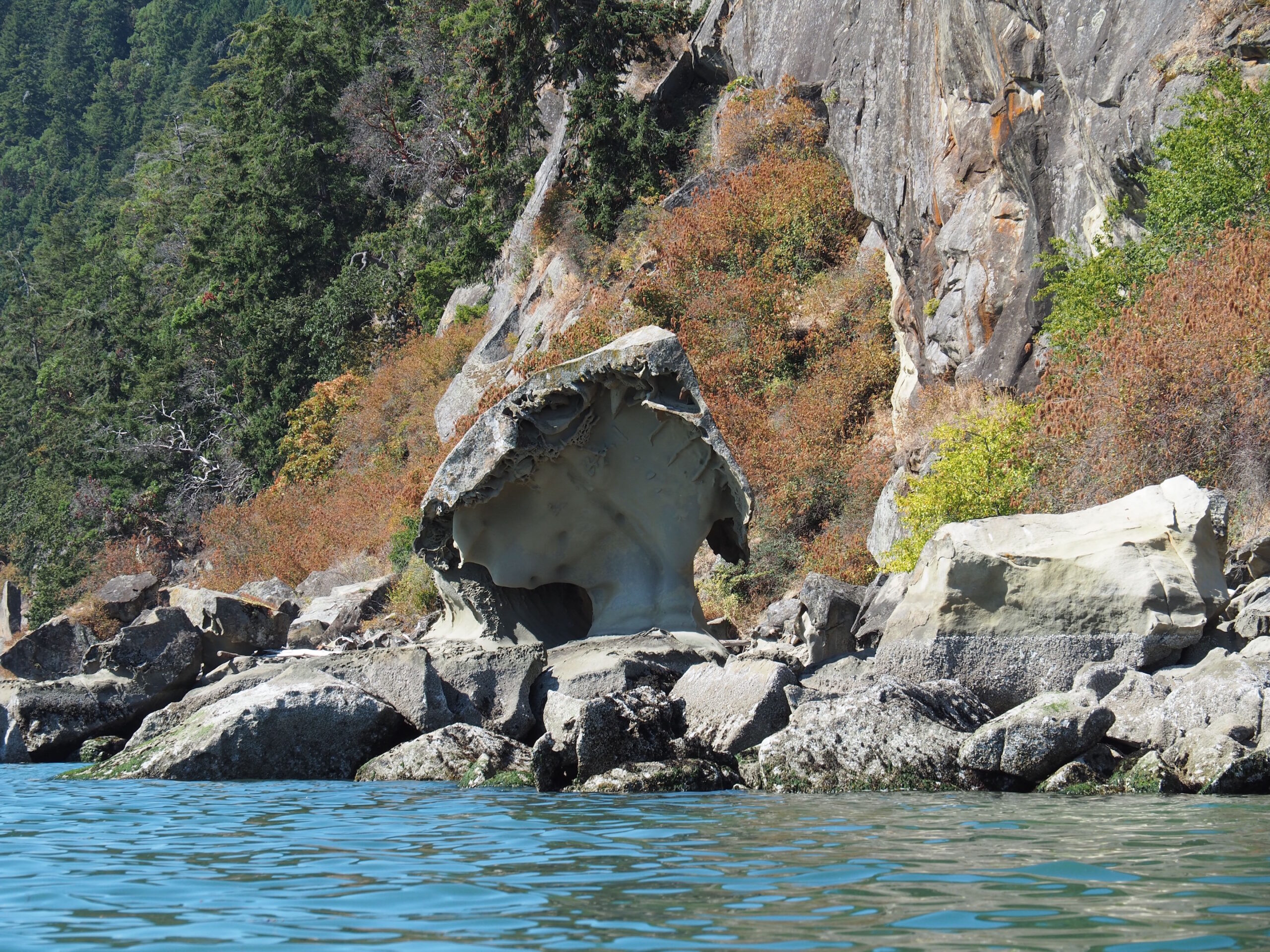
All these pollutants come from land based sources, and our own homes. There are so many different types of waste found on the beaches, but plastic is the most common one. The following types of plastics are the ones most commonly found in the ocean:
- Polyethylene, such a water bottles and plastic bags.
- Cellulose acetate, such as cigarette butts which not only litter, but also leak nicotine, heavy metals and other chemicals into the ocean.
- Polyvinylidene Chloride, such as food wraps and other packaging.
- Polystyrene, such as one time use coffee cup lids and take-out foam containers.
- Polypropylene, such as straws, stirrers and bottle caps.
Big pieces of plastic can get broken down into tiny particles called microplastics and even smaller than that, nanoplastics. But some plastics are already used as these tiny particles called “micro-beads” that are found mostly in hygiene products, such as face rubs, toothpaste, body washes, etc. To avoid using products with plastic micro-beads, please read the ingredient label to look out for ‘polyethylene’, or ‘polypropylene’.
To reduce ocean pollution, we have to change how we consume plastic, such as:
- buying food without plastic wrapping,
- drinking tab water,
- recycling properly,
- reduce use of single-use plastics,
- avoid products containing micro-beads,
- buy local
- and continue to spread the word on solutions to ocean pollution so that we can keep our oceans happy and healthy!
We challenge you! Go to your favourite beach, find the kinds of plastics we mentioned above & bring us your garbage bag to one of the two clean-up stations (Pebble Beach Parking lot & Morning Beach), or send us a picture to deep@galianoconservancy.ca & you will get a Whale Bumper Sticker of your choice!
Please post your personal beach clean-up photo on facebook, or instagram and tag us @galianoconservancy #worldoceansday #galianobeachcleanup #greatcanadianshorelinecleanup
